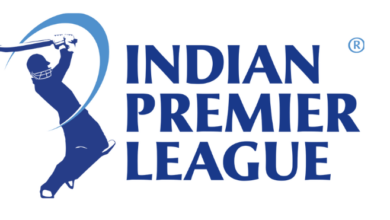
Robots can be awesome. Right now, it’s hard for many businesses to run without the use of at least one robot. But did you know there’s a secret war going on online? Companies are using residential proxies, crawlers, and scrapers to gather data from multiple sites. Other sites are fighting hard to prevent this. Robots are being deployed on a massive scale.
What is this war all about?
The war is between competing companies that are scrambling for valuable pieces of data, with or without permission from whoever they get that data from.
Companies want to know how their competitors make key pricing and business decisions. Since competitors do not just give up this information easily, companies have waged war against each other. In this war, the company with the most relevant data, and the best way to analyze and execute wins. Let’s talk about exactly how they gather this data.
How residential proxies are used online to gather data
Companies collect this data through a process called web scraping. Here, they automatically scan and massively extract data from the internet using bots known as crawlers and scrapers.
They then use this data to improve their operations, from product decisions all the way down to customer service experiences.
Does this sound like something that’s being done by underground companies in the shadows? Wrong. Big companies like Google, Bing, Amazon, and Walmart all use web scraping. However, you can do this safely by choosing the right proxy for this work from pirate bay proxy source.
For example, search engines must crawl, scrape, and index web pages. E-commerce titans scrape the internet to get pricing information. Big companies have even been accused of using such bots (crawlers and scrapers) to adjust prices automatically.
How websites guard themselves using anti-bot measures
In any war, there’s offense and defense. You already know that your competitors are out to get all your data. This is still a grey area – some people mean no harm, and some do. How do you protect your site from the bad ones? Here are some methods:
1. Require logging in to access some information
If everything is public, a scraper can keep making requests without having to identify themselves. Forcing people to log in forces a scraper to provide some identifying information. This may not stop scraping but may limit it.
2. Monitor user accounts
Investigate accounts that have high activity levels but make no purchases. A spike in requests from one user who doesn’t take a specific action can quickly inform you that they’re scraping for data. Deny or limit their access to your useful data.
3. Blacklist specific IP addresses
Are you receiving too many requests from one computer? Are these requests coming in too fast, indicating suspicious activity? Block that IP address through your .htaccess.
4. Prevent hotlinking:
When you do this, scraped content will not serve requests hosted by your server. People trying to access restricted information will no longer be able to use your server against you by hotlinking.
5. Use CAPTCHA or re-CAPTCHA
These easily separate humans from bots. However, since they may irritate humans, use them sparingly. Consider showing them to users who display aspects of suspicious activity.
6. Go legal
Legal wars are won and lost in court. To protect yourself legally, make sure your terms of service clearly prohibit some forms of scraping. Yes, even big companies have gone legal. For example, Facebook sued quiz makers for stealing data.
Use cases of proxies and the data gathered
It’s quite clear that today businesses need massive amounts of data to get ahead. That’s why web scraping is now a major industry.
How do you get that data anonymously? That’s where proxies come in. It keeps your IP address invisible, thus hiding your physical location and internet activity. With that, you’re able to scrape the web fast and anonymously.
Here’s what businesses do with the data they scrape:
Pricing intelligence
Here, you gather useful, relevant, and real-time pricing data from your competitors. This can help you to bring in new products and optimize your pricing strategy.
SEO monitoring
In an instant, you can quickly get the exact keywords that are driving traffic to your competitor’s site. Additionally, you can gather information about their link building, content creation, and page structure strategies.
Fare aggregation
You can collect data from flight company websites and travel agencies. This is how travel aggregator sites like Trivago and Expedia get content. They simply use public data sources, proxies, and automated web scraping.
Market research
This is the heartbeat of many businesses. Proper market research needs to be done using clean, high-quality, and insanely accurate data. Smart businesses nowadays use web scraping to help with market trend analysis, competitor monitoring, product research and development and optimization of their points of entry.
Brand protection
Your brand should be protected. Customers should get consistent information, messaging, and pricing, regardless of their point of contact. The best way to maintain that image is to scrape your own product data continuously.
Conclusion
The war is on. If you think you’re not part of it, then you may be an unknowing soldier. Your phone, app, and website are data machines. Be on the winning side by using residential proxies and scraping data to your advantage. Don’t forget the defense; always do your best to prevent negative web scraping.






